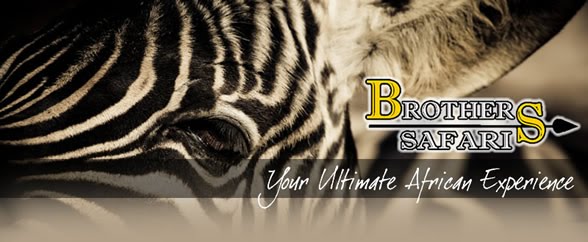I imagine images of James Herriot flash through many of your minds (for those of you who haven't read his books and have an interest in animals and the adventures one encounters while caring for them, you should find one and read it), and in some ways you wouldn't be far off - what with perilously hanging out of a helicopter trying to dart a fast moving zig-zag blur of fur and horns, to having to break a hasty retreat from a not-so-sedated charging rhino! There are certainly adventures a plenty...
But the truth is you do not have to be a "special" vet to start off in wildlife, in the academic sense that is, but as a person you do need to be very determined and a little daft...
I started off my veterinary career in the UK after completing my studies at Onderstepoort, here in South Africa. During my 5 and a half years in the UK I treated everything from cats and dogs to cattle, sheep, pigs, rabbits, snakes and spiders, and ostriches in Wales(they play some rough rugby there!). But my heart was always in wildlife and when I returned to South Africa I was determined to work in the wildlife field as a vet, but not just relocating animals - I wanted to still practice veterinary science. Not an easy ambition.
African Vet Safaris
To cut a very long story short(a 7 year story in fact), I now own and run a specialist safari business as well as practising as a wildlife veterinarian. The safari business(http://www.brothressafaris.com/) offers guests(lay persons and veterinary affiliated persons) the opportunity or join me on select wildlife procedures as a vet. Guests are often hands on and totally behind the scenes, giving them rare insight into the world of wildlife in South Africa. Through their participation guests fund most of the work they are privy too, thus supporting wildlife conservation. This enables us to select and work with certain projects and organisations that need the veterinary and financial support, as well as still working with private game reserves and owners. A large part of my business is training foreign(mostly) vets, vet students and vet nurses in the art(for it often in an 'art' rather than an exact science...remember this as you follow this blog) of wildlife immobilisation, and also about conservation issues.
Somewhere in between all this I still work as a wildlife bet responding to calls, emergencies and routine work for individuals and game reserves. The trick is to find family time for Becky my significant other, William - our gorgeous lively 3 year old son, and 'Shot'-the not-so-young daft but adorable white Bull Terrier. Vet call outs thus often become family affairs.
So now you have a fair idea of how crazy you need to be if you want to be a wildlife vet. Of course not all wildlife vets have this much going on-they simply work 12-18hour days as vets from April to October, and then try catch up on the rest of their lives from November to March.
Oh yes, I also managed to recently complete a Masters Degree in Veterinary Tropical Diseases of Wildlife. Fortunately it was a web based degree so I could squeeze it on somewhere between midnight and two am when i find myself at a loss for things to do...
So now you know all that, I guess you want to know what I actually do as a vet?
Well then watch this space....
Wild African Regards,
Dr Peter S. Brothers
Wildlife Vet & Director Brothers Safaris/African Vet Safaris
Subscribe to:
Post Comments (Atom)


No comments:
Post a Comment